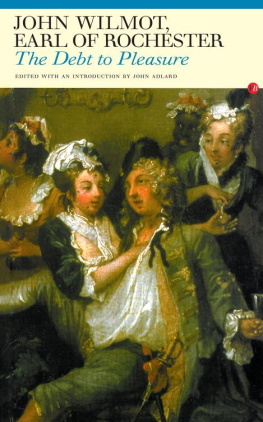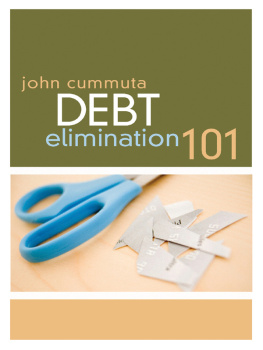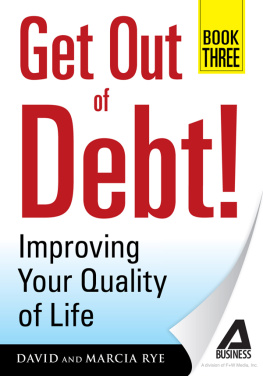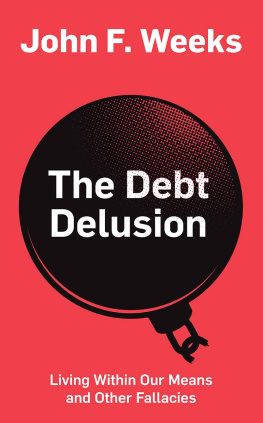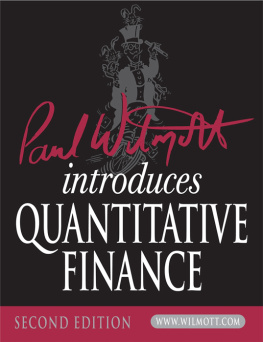Wilmott John - The Debt to Pleasure
Here you can read online Wilmott John - The Debt to Pleasure full text of the book (entire story) in english for free. Download pdf and epub, get meaning, cover and reviews about this ebook. year: 2012, publisher: Carcanet, genre: Art. Description of the work, (preface) as well as reviews are available. Best literature library LitArk.com created for fans of good reading and offers a wide selection of genres:
Romance novel
Science fiction
Adventure
Detective
Science
History
Home and family
Prose
Art
Politics
Computer
Non-fiction
Religion
Business
Children
Humor
Choose a favorite category and find really read worthwhile books. Enjoy immersion in the world of imagination, feel the emotions of the characters or learn something new for yourself, make an fascinating discovery.
- Book:The Debt to Pleasure
- Author:
- Publisher:Carcanet
- Genre:
- Year:2012
- Rating:3 / 5
- Favourites:Add to favourites
- Your mark:
- 60
- 1
- 2
- 3
- 4
- 5
The Debt to Pleasure: summary, description and annotation
We offer to read an annotation, description, summary or preface (depends on what the author of the book "The Debt to Pleasure" wrote himself). If you haven't found the necessary information about the book — write in the comments, we will try to find it.
The Debt to Pleasure — read online for free the complete book (whole text) full work
Below is the text of the book, divided by pages. System saving the place of the last page read, allows you to conveniently read the book "The Debt to Pleasure" online for free, without having to search again every time where you left off. Put a bookmark, and you can go to the page where you finished reading at any time.
Font size:
Interval:
Bookmark:
FyfieldBooks present poetry and prose by great as well as some times overlooked writers from British and Continental literatures. Clean texts at affordable prices, FyfieldBooks make available authors whose works endure within our literary tradition.
The series takes its name from the Fyfield elm mentioned in Matthew Arnolds The Scholar Gypsy and in his Thyrsis. The elm stood close to the building in which the Fyfield series was first conceived in 1971.
Roamon!Thelightwesoughtisshiningstill
Dostthouaskproof?Ourtreeyetcrownsthehill,
OurScholartravelsyetthelovedhill-side
from Thyrsis
T HE credulous Dr Plot, author of TheNaturalHistoryofOxford-shire , once stood by some hayricks on the outskirts of Woodstock, testing an echo from the brow of the hill on which my Lord Rochesters Lodge stands. Having read that Bacon had tried in vain to make an echo repeat the word Satan, he was delighted to find this echo neither so modest or frighted of the Devils name. Many of his readers must have thought it only too natural that Echo should lose her inhibitions near that lodge where the diabolical Earl, with his diabolical friends from the court of Charles II, used the body of more than one Woodstock girl, had lascivious pictures drawn and ran out naked into the Park.
This diabolical, romantic Rochester has always been with us, together with the noble penitent of the other school of biographers, the merely wicked man converted on his death-bed, an example to us all. Probably nobody needs to be told that both versions are false. Yet little has been written on Rochesters character and poetry that brings out their true distinction. According to Dr Leavis, he had uncommon natural endowments which, it is reasonable to suggest, he might have done much more with had he been born thirty years earlier. There is little one can say with any certainty about what a man might have done had he been born into another age, but thirty years earlier the intellectual milieu would of course have been different, and it is Rochesters response to the intellectual milieu of the Restoration that brings him into harmonywith certain thinkers who are changing our lives, or at least provoking us, today.
Wilhelm Reich has described what is called the cultured human as a living structure composedofthreelayers:
On the surface he carries the artificial mask of self-control, of compulsive, insincere politeness and of artificial sociality. With this layer, he covers up the second one, the Freudian unconscious, in which sadism, greediness, lasciviousness, envy, perversions of all
To reach that third layer one has not only to blast a way through the first; the terrors of the second have also to be encountered . Such was Rochesters Divine Comedy, with a coda including his dialogues with Burnet, preparatory to his conversion, and Robert Parsons reading of the Suffering Servant, by which that conversion was effected. Anne Righter has described the conversion as the total collapse of a personality: his last letters and his recantation could have been written by anyone; Rochester had effectively ceased to be Rochester. To Burnet he said, in those preparatory conversations,
the two maxims of his morality then were, that he should do nothing to the hurt of any other, or that might prejudice his own health: And he thought that all pleasure, when it did not interfere with these, was to be indulged as the gratification of our own natural appetites. It seemed unreasonable to imagine that these were put in a man only to be restrained, or curbed to such a narrowness . This he applied to the free use of wine and women.
Burnet replied that if appetites being natural was an argument for the indulging them, then the revengeful might as well allege it for murder, and the covetous for stealing; whose appetites are no less keen on the objects; and yet it is acknowledged that these appetites ought to be curbed. This can only be called a foolish answer, Rochester having defended pleasure provided it did nothing to the hurt of any other. However, Burnet went on: If the difference is urged from the injury that another person receives, the injury is as great, if a mans wife is defiled, or his daughter corrupted and he makes it clear, later in his book, that these ideas of defilement and corruption were based not on love but on laws of property. Men, he says, have a property in their wives and daughters, so that to defile the one, or corrupt the other, is an unjust and injurious thing. He proceeds from this to a negative view of the passions:
Burnet, then, sees as divinely ordained that Reichian artificial mask of self-control, of compulsive, insincere politeness and of artificial sociality, and the energies beneath wholly contemptible, mere sparring partners of Reason, to exercise and strengthen the first layer.
Rochester, it seems, did not protest. All this he freely confessed was true. and wrote in his Upon Nothing:
Great Negative, how vainly would the wise
Inquire, define, distinguish, teach, devise
Didst thou not stand to point their blind philosophies!
Here, though he told Parsons that Hobbes philosophy had undone him, and many more, This became:
All my past life is mine no more;
The flying hours are gone,
Like transitory dreams given oer
Whose images are kept in store
By memory alone.
Whatever is to come is not:
How can it then be mine?
The present moments all my lot,
Time involves change. And because writes Hobbes in his sixth chapter, the constitution of a mans body is in continual mutation, it is impossible that all the same things should always cause in him the same appetites and aversions. Here is the background of the rest of Rochesters lyric:
The present moments all my lot,
And that, as fast as it is got,
Phyllis, is wholly thine.
Then talk not of inconstancy,
False hearts and broken vows;
If I, by miracle, can be
This livelong minute true to thee,
Tis all that heaven allows.
Strephon, in an early dialogue-poem, had justified his jilting of Daphne by explaining that tis natures law to change. The task is to preserve humane behaviour in the face of this. Love is presented as a recurring death-wish, every orgasm being, in a stock seven teenth-century witticism, a death:
When, wearied with a world of woe,
To thy safe bosom I retire,
Where love and peace and truth does flow,
May I contented there expire,
Lest, once more wandering from that heaven,
I fall on some base heart unblest,
Faithless to thee, false, unforgiven,
And lose my everlasting rest.
If expiring in ones mistresss arms was to Restoration readers a traditional joke (indeed, Dryden never tired of it), to Rochester it was also a very tender joke. Contented on that safe bosom he attains not only death but also everlasting rest comparable to that, after death, for which the Christian hopes. The background seems to be in Leviathan, Chapter 2:
For men measure, not only other men, but all other things by themselves: and because they find themselves subject after motion to pain and lassitude, think every thing else grows weary of motion and seeks repose of its own accord; little considering whether it be not some other motion wherein that desire of rest they find in themselves consisteth.
In the continual motion, as Hobbes calls it in Chapter 1, of external things upon our eyes, ears and other organs thereunto ordained, the sensual women who move through mens lives play no small part. Hence Rochesters determinedly realistic view of love in a society where sex-negation and pornographic exploitation necessarily exist side by side. All that we can be sure of is the happy minute, the death which is both extinction and salvation, peace after orgasm, rest.
Font size:
Interval:
Bookmark:
Similar books «The Debt to Pleasure»
Look at similar books to The Debt to Pleasure. We have selected literature similar in name and meaning in the hope of providing readers with more options to find new, interesting, not yet read works.
Discussion, reviews of the book The Debt to Pleasure and just readers' own opinions. Leave your comments, write what you think about the work, its meaning or the main characters. Specify what exactly you liked and what you didn't like, and why you think so.

